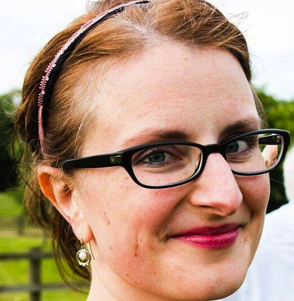How important is a particular language?
Many of us have never stopped to consider the value of a specific language.

Whether it’s one we’ve never heard or one we use every day – why would we? If our first language is English, our language isn’t under threat, and we have access to education, healthcare, God’s Word and everything else we could want in our own language.
At Wycliffe Bible Translators, we believe the Bible is for everyone, no matter what language they speak. Many people are surprised to learn that the Bible still hasn’t been translated into every language yet. In fact, the complete Bible is only available in 670 languages; less than 10% of all the languages spoken in the world today.
Identity
Language is closely tied to identity and, whether a language is spoken by 100 million people or 100, its speakers are likely to feel very strongly about it. Not everyone has the luxury of speaking a major world language; as much as 40-50% of the world’s population speak endangered languages. This means that issues such as how many people use a language, whether it’s used just at home or in more formal situations as well (for instance, in schools) and the future of that language are more pertinent questions than you might think.
It feels wrong
How would you feel, for instance, if from tomorrow onwards it was deemed ‘correct’ to write tho for though, thru for through, det for debt, and frend for friend? To most of us, there is something intrinsically wrong with these simplified spellings. Ironically, it’s often hard to put that feeling into words.
History shows similar reactions and attitudes. Some of Noah Webster’s (of dictionary fame) many spelling suggestions caught on quickly and are very much in use around the world; color, center, plow and jail, for instance. Others, including tung for tongue, dawter for daughter, ake for ache and wimmin for women were rejected completely, for the same reason we would reject certain reforms today: somehow they just don’t feel right.
A language, even a specific variety of a language, is an expression of a group’s unique identity. Bearing this in mind, it’s not hard to understand why people feel strongly when governments choose to favour some languages over others, or even just when spelling changes are suggested.
Addressing us personally
Not surprisingly, when most of us read something in someone else’s language, it doesn’t feel as if the writer is addressing us personally, and we don’t connect with the content in the same way as if it had been written to us in our language.
Does speaking a minority language make someone less important or less worthy of access to education, healthcare and the Bible? More people than you might imagine are in this quandary – many of the world’s 7,099 languages are not just naturally falling out of use, but actively being stamped out by governments.
It’s not a question of whether these languages are important – it’s a question of whether the people who speak them are important; whether they have the right to hear what God has to say to all of us.
This is why Wycliffe Bible Translators exists. We hear countless stories of people who have read the Bible several times in another language, but the message only really hit them once the Bible had been translated into their own language. It’s not right that some of us can choose from hundreds of translations in our own language, while others are still waiting for their first translation to be finished, or even waiting for it to start!
Camilla is part of the Supporter Engagement team with Wycliffe Bible Translators



